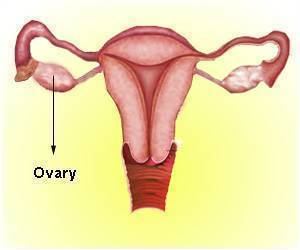Women in many remote parts of the mountain state are virtually ex-communicated when they are menstruating. They are forced to sleep outside the house.

‘Menstruation stigma is a form of misogyny. Negative taboos condition us to understand menstrual function as something to be hidden, something very shameful.’





The so-called "unclean" women, during their periods and after childbirth, are barred from touching cattle or men and they are even denied access to toilets, walking miles from their villages daily to take a bath. Taking up cudgels to fight this social stigma, the administration in Kullu district has set up a task force comprising reproductive health workers to conduct sensitisation programmes at the grassroots.
"We have identified 92 out of the 204 panchayats where the problem is still prevalent," Kullu Deputy Commissioner Yunus Khan, the brain behind the launch of a 'Naari Samman' or 'Respect Women' campaign, said.
He said the taboo is of greater prevalence in one particular caste.
The one-year campaign was launched on January 1 and aims reach out to all the 92 "problem" villages within six months. Fanning out for the campaign is a backbreaking task in the mountains.
Advertisement
Officials involved in the campaign say the staff has to traverse distances ranging from 10 to 25 km on foot, or sometimes on horseback, from the road-head to reach some of the villages.
Advertisement
He favours changing young minds.
"If the school-level curriculum includes menstruation, why is the educational level of the students so low," asked Mendhapurkar, Director of Shimla-based NGO Social Uplift Through Rural Action (SUTRA), while speaking to IANS.
The problem, he said, is that the teachers are not appropriately educating the students. Moreover, sanitary napkins are not provided in the toilets of rural schools.
Mendhapurkar, who wrote a book "Bitya Badi ho Gayi Hai' ("The Daughter has Grown Up"), said the tradition of keeping the women in isolation during their periods also prevails in the interiors of Kangra, Sirmaur and Kinnaur districts.
According to him, there are some rural communities that do so because of religious reasons. Others do so because they live in tiny helmets where it's normally practiced and those areas are almost out of bounds owing to tough topography.
"After educating the womenfolk that, like defecation, menstruation is also a natural process and that menstrual blood is not poison, the discrimination has been somehow ended in many areas of Solan, Sirmaur, Bilaspur and Una districts," Mendhapurkar said.
"No legislation can change the mindset, it's only education that can bring an end to this social practice and help change attitudes," he added.
The practice of isolating women during their monthly bleed is now illegal in Nepal -- where it was once widely prevalent.
Under the law, there is provision of a three-month jail sentence or a Rs 3,000 fine, or both, for anyone forcing a woman to follow the custom.
Source-IANS













